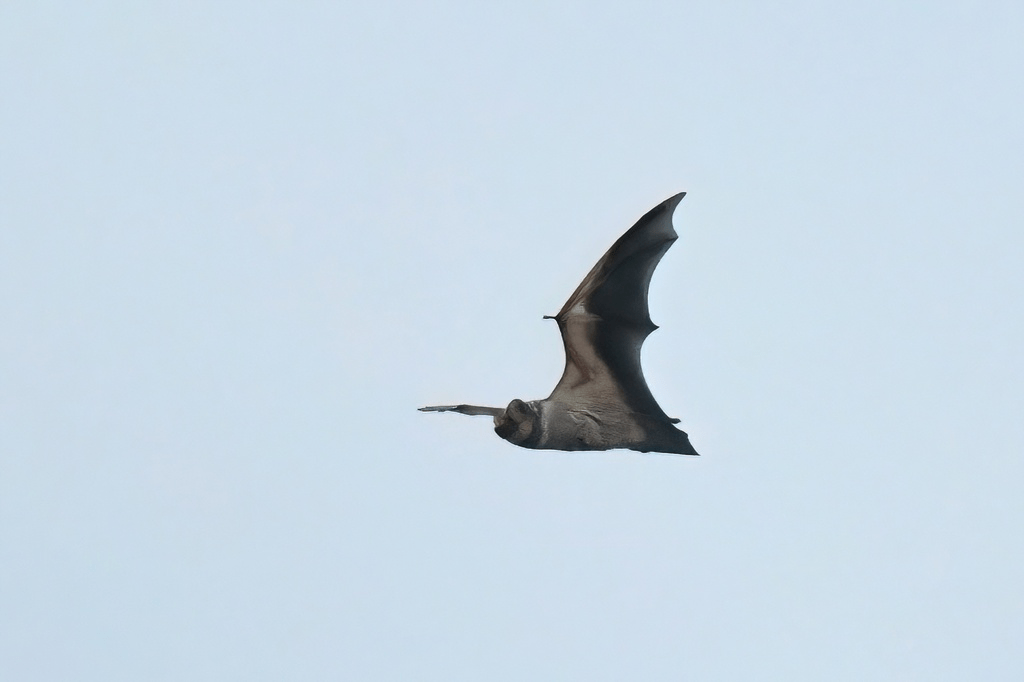Out of all the natural areas that Texas Master Naturalist volunteers Tina Olivas, Mary Beth Lampe and Karen Harden have surveyed, the Fort Worth Botanic Garden and surrounding natural areas in Fort Worth house the largest bat population throughout Tarrant and Parker counties.
Just before the sun rose mid-Monday, the three volunteers installed an audio recording device to collect data on the bat species that predominantly inhabit the garden at night.
They began their research in the Cross Timbers region in spring 2024, after the Texas Parks and Wildlife Department was tapped by the North American Bat Monitoring Program in 2023 to collect more data about bats that inhabit Texas. Volunteers also have monitored bat populations at 12 other locations, including the Tandy Hills Natural Area, the Fort Worth Nature Center & Refuge, the Sheri Capehart Nature Preserve, Lake Mineral Wells State Park and private land in both Tarrant and Parker counties.
Which bats have been found at the Fort Worth Botanic Garden?
Attracted to water, vegetation and open spaces, five species largely inhabit the garden, the areas along the Trinity River, and other natural spaces in Fort Worth found amid the urban sprawl of development across the city.
Researchers with the national bat monitoring program use the data to assess bat behavior, their responses to the habitat and how the local environment serves the nocturnal animals.
The tricolored bat, one of the five species volunteers discovered and documented, is making itself at home in the garden. The species makes up 53% of the endangered North American bat population, said Olivas.
Because of the risk that over half of the country’s bat population faces, the data being collected by Olivas and her fellow volunteers supports not only national research but conservation work that’s being done on regional levels.
“This will give (researchers) that first level of data of where to focus their efforts,” said Olivas.

The research also helps the botanists at the Botanical Research Institute of Texas, or BRIT, learn more about the biology of the garden and Fort Worth’s untouched natural spaces, said herbarium collections manager Ashley Bales. BRIT is the nonprofit that has managed the city-owned garden since 2020.
The data also allows the garden’s leadership to identify plant species and enhance the environment to continue attracting bats. Bales suggests the garden could make data available to the public through exhibits or other educational opportunities, encouraging Fort Worth residents to practice wildlife conservation and environmental stewardship.
As of now, BRIT’s botanists are brainstorming ideas for how they can continue to apply the research on Fort Worth’s bats into the day-to-day work at the garden, said Bales.
“Because we’re in such a unique habitat, having this green space within a big urban environment, I think it really shows how important it is to maintain and conserve these green spaces,” said Bales.
Regardless of size, neighborhood green spaces and yards are just as crucial to bat habitation and other species coexisting in the city, Bales added.
Olivas wants Fort Worth residents to know that bats, despite their sometimes negative reputation, play an important role in the environment, primarily by feeding on invasive insects and pollinating native plants.
She encourages residents to set up bat boxes, avoid insecticides, keep lights to a minimum at night and actively research how to protect the bat community in Fort Worth.
“I love bats. But I don’t just love bats, I love all of the ecosystem, and they’re just one critical part of it,” said Olivas. “I know they’re important, so this project is important.”
For Olivas, Lampe and Harden, their eyes are on expanding their research efforts throughout Tarrant and Parker counties. The Bob Jones Nature Center & Preserve, Randol Mill Park and natural areas in White Settlement, Hurst, Euless and Bedford are their next targets.
“We’re moving … to try to get to as many places as possible,” said Olivas.
Nicole Lopez is the environment reporter for the Fort Worth Report. Contact her at [email protected].
At the Fort Worth Report, news decisions are made independently of our board members and financial supporters. Read more about our editorial independence policy here.
Related
Fort Worth Report is certified by the Journalism Trust Initiative for adhering to standards for ethical journalism.
Republish This Story
![]()


